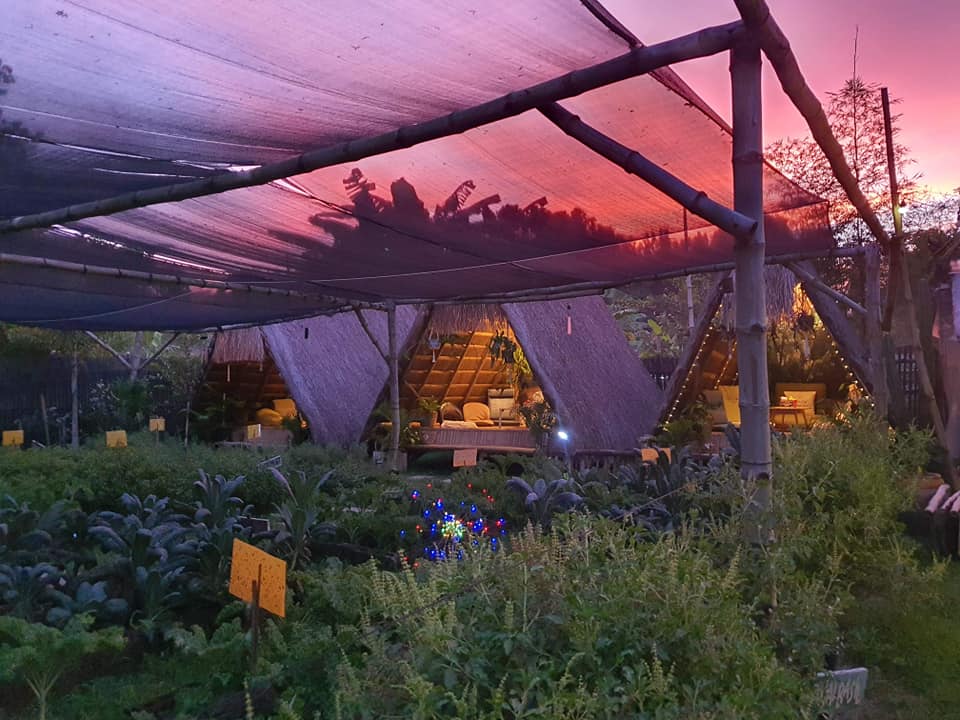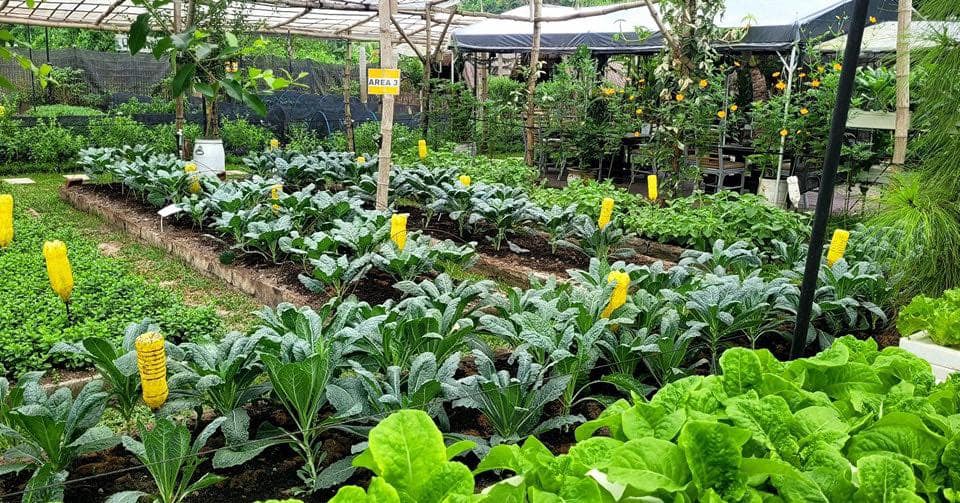Here’s the thing: everyone wants to make an impact, but not everyone knows how to do it. In a world where “organic,” “sustainable,” and “local” are tossed around like ingredients in a big, tasteless soup, what if you could create a business that actually means something?

Imagine the Philippines as fertile ground, not just for growing plants, but for cultivating a movement—one herb, one spice, and one mindful choice at a time. Starting an organic herb and spice garden business here isn’t about selling parsley. It’s about planting the seeds of change, flavoring the future, and building something that’s yours, that your community can trust, and that your customers will crave.
This isn’t just about gardening, and it’s definitely not about quick profit. It’s about building a business with purpose, passion, and, yes, a little bit of dirt under your fingernails.
Let’s explore how to make this organic herb and spice garden more than just a business. Let’s make it a calling.

The Soil of Purpose: Why This Business Matters
So why herbs? Why the Philippines? And why go organic?
Let’s start with a little truth: people are tired of anonymous food. They’re tired of tomatoes flown in from thousands of miles away, of ingredients they can’t pronounce, and of eating things that have been handled by more machines than humans. They want something real. And they’re willing to pay for it.
In the Philippines, the demand for organic, local, and fresh produce is sprouting like weeds after the rain. Families want it. Restaurants want it. Health-conscious consumers are craving it. They want local produce with a story. And who better to tell that story than you?
This isn’t just a gap in the market; it’s a chasm. And it’s waiting for someone to plant themselves firmly on the edge, look down, and say, “I can build a bridge here.”
Your job isn’t just to grow basil, turmeric, or lemongrass. It’s to grow trust. To grow a connection. To grow something that your customers feel good about putting in their meals and on their tables.
Step 1: Find Your Plot and Start with What Matters
A garden is only as good as its soil. You can’t grow strong, healthy plants in dirt that’s lifeless, hard, or tainted with chemicals. And here’s where organic farming gets its roots: in soil that’s not just dirt, but a thriving ecosystem all its own.
When choosing a location, look for soil that’s rich and well-drained. If you’re blessed with land, test the soil—organic farming doesn’t work well in barren, nutrient-stripped dirt. If you need to, supplement it with compost, worm castings, and natural fertilizers. Think of this as setting up a foundation; the soil will support your plants just as much as it will support your story.
And keep this in mind: no one’s looking for “the cheapest.” They’re looking for “the best.” You want to be the one who delivers quality, who says, “I’m willing to invest in what I grow.”
Step 2: Choose Your Herbs and Spices—Select Your Signature
This is where you define what you’re about. Don’t try to grow everything. Not every herb or spice will thrive in the Philippine climate, but there are plenty that will, and they’re ready for you.
Consider starting with the staples: basil, mint, lemongrass, and chilis. Then think about what’s unique, what’s distinctly Filipino. Turmeric, ginger, pandan—they’re native, resilient, and they carry a cultural flavor that goes beyond what they add to food. Choosing these isn’t just smart; it’s strategic. You’re making a statement: “I’m not just growing herbs—I’m growing a taste of the Philippines.”
Your crop selection is also your brand. When people think of your business, they should know what you stand for and remember that you’re not just a vendor—you’re a creator.
Step 3: Certification Isn’t Just a Label; It’s a Commitment
Getting organic certification isn’t a minor step. It’s a big one. And for a lot of people, it’s a hassle. But here’s the truth: if you’re serious about making an impact, you want that badge of trust. People are willing to believe in your product because you believe in it enough to certify it.
In the Philippines, you can seek organic certification through the Department of Agriculture or other third-party certifiers. Yes, it takes time and effort. But remember, this is about showing customers that you’re organic herb and spice garden business is the real deal. And in a sea of produce that’s generic and uncertified, this makes you stand out. It makes you trustworthy.
Step 4: Go Beyond Sales—Build a Brand That Connects
Your brand is your handshake. It’s how you show up, say “hello,” and start a conversation with people who care about what you’re doing.
Building a brand is about more than logos and colors. It’s about creating a feeling, a connection. Share your story. Talk about your soil, your process, the way you harvest. Share photos of your plants growing, or of the team that helps bring them to life. People buy from people, not from companies.
Use platforms that make storytelling easy—social media, local markets, maybe even a small blog. Let your customers see what goes into making their herbs and spices. Let them smell it, touch it, even help harvest it if that’s possible. Build a brand that isn’t just “the local organic herb guy” but a business that they feel a part of.
Step 5: Farmers’ Markets, Direct-to-Customer, and Subscription Boxes
Your product is unique, and that gives you options. Farmers’ markets are fantastic; they’re intimate, and they let people meet the farmer—the creator—behind the food they’re buying.
But don’t stop there. Think about subscription boxes. Imagine your customers receiving fresh basil, lemongrass, and even a small sample of dried chilis every month. Not only is this recurring revenue for you, but it’s also an ongoing relationship with your customers. You’re not just selling herbs; you’re selling an experience.
Make it personal. Make it a joy to open. And make sure that your packaging, your message, and even your delivery are aligned with your brand’s story.
Step 6: Think Beyond Fresh—Create with Purpose
Fresh organic herbs and spices are wonderful, but dried herbs, spice blends, and even infused oils are ways to keep your product around longer. Plus, they allow you to expand your market. The beauty of dried and preserved products is that they reach beyond the here and now. They’re shelf-stable, they last, and they can create even higher value.
Consider a line of spice mixes, or dried herbs that carry your brand’s flavor and spirit. Imagine people gifting each other jars of your hand-crafted spice blends, using them to make meals that bring your story to their tables.
The Real Opportunity: Why You?
At this point, you might be wondering: Why me? Why here, and why now?
Here’s the thing about an organic herb and spice garden business in the Philippines—it’s yours to make real. Every leaf, every root, every single jar of spices you sell has a piece of your story inside. Your business isn’t just a farm; it’s a connection to the community, the earth, and to a new way of thinking about food.
In a world where so many people are just looking for something real, you have the chance to create it. It’s not about reaching perfection; it’s about being genuine. It involves putting down roots in your community, standing up for something significant, and witnessing its development.
So if you’re ready to do more than just plant seeds—if you’re ready to plant a story, a legacy—this is your sign. Go dig in the dirt, grow with intention, and watch as you bring a little more flavor, color, and meaning into the world.
Because this isn’t just a business; it’s a movement. And it’s yours to start.
